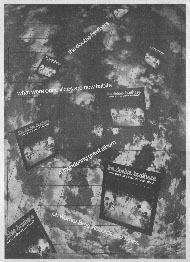![]()
  |

What Were Once Vices Are Now Habits
The Doobie Brothers
Warner 2750
Released: February 1974
Chart Peak: #4
Weeks Charted: 62
Certified Platinum: 10/13/86

 Vices marks the latest step in the career of one of America's more noteworthy and consistent singles bands. And like most albums released by bands of this type, it contains one or two potentially strong singles, a couple of left-field surprises and a great deal of mediocre filler.
Vices marks the latest step in the career of one of America's more noteworthy and consistent singles bands. And like most albums released by bands of this type, it contains one or two potentially strong singles, a couple of left-field surprises and a great deal of mediocre filler.
Numbers such as "Eyes Of Silver" and "Road Angel" return successfully to the formula that made "China Grove" and "Long Train Runnin'" the deserving hits that they were -- featuring clean, audible vocals, cohesive though unadventurous instrumentation, and the kind of punchy, upbeat melodies that Top 40 radio thrives on.
 Click image for larger view. |
On the remaining cuts, however, Vices is a pretty dull affair. Several attempts at formula Doobies rave-ups fall short because of their numbing sameness, and this ultimately points out the band's most severe limitation -- the lack of a consistently fine songwriter. Neither Pat Simmons nor Tom Johnston, each of who authored about half the album's songs, seems capable of consistently writing material of the quality of the band's singles.
- Alan Niester, Rolling Stone, 5/9/74.
Bonus Reviews!
A fine set from this versatile band, highlighted by Tom Johnston's distinctive lead vocals and fine lead guitar. As always, there are a number of potential singles in the LP, and the group continues its justifiable reputation as a "goodtime" band. Highlights include "Down in the Track," "Eyes of Silver" and "Spirit."
- Billboard, 1974.
The Doobies are smart enough and good enough to have it both ways. They can play tightly enough to come up with one AM hit after another, but loosely enough to make albums that appeal to a broader audience. Solid professionals, they blend bar-band roots with R&B influences and the Allman Brothers' and Grateful Dead's instrumental complexity. They play with enthusiasm, sing well together, and make refreshingly rough-sounding albums. They also strive too hard to sound soulful and are sometimes repetitious, if seldom trite. What Were Once Vices won't change the face of rock music, but it's an easy record to have fun with, made by a band with an attitude toward music that suits their talents.
- Jon Landau, Rolling Stone, 6/6/74.
The trouble with rock-and-roll these days is that you can pass yourself off as an Important Artist simply by playing it; the form has become more important than the content. To add to the trouble, a better than average band (such as the Doobie Brothers) gets lost in the amorphous mass of rock along with both the stellar and the lousy groups.
The Doobies combine enough of the jive of current rock with enough talent to make them worth listening to twice. But thrice? Most likely nay; they are good, but not that good. It may be, years from now, that one or more of them will turn up as a member of a killer band that won't quit. It's been known to happen. In the meantime, the Doobies are a good group, and you could do a lot worse. Small praise? Cold comfort? Look about you these days -- baby, that is rock-and-roll. Especially when, as in this particular case, the album title is better than the music.
- Joel Vance, Stereo Review, 8/74.
Apart from the tight "Black Water," the Doobie Brothers' follow-up to their breakthrough The Captain and Me was a tepid affair, lacking the strong material of the previous album. * * *
- William Ruhlmann, The All-Music Guide to Rock, 1995.
Despite the Doobie Brothers' strong live reputation and hit singles, this release was considered by critics and some fans to be a slight disappointment, notwithstanding the presence of the Memphis Horns, drafted in to beef-up the sound both on record and live, and ex-Steely Dan member Jeff Baxter who joined the band, albeit unofficially, just prior to the album.
What Were Once Vices Are Now Habits hit Number Four in the US -- Number 19 in the UK -- and boasted a couple of minor hit singles in "Another Park, Another Sunday" and "Eyes Of Silver," before the following year saw their first US Number One with "Black Water" (unreleased as an A-side in the UK) -- a strong song, albeit a surprise Number One, that displayed the band's vocal dexterity as well as their instrumental skills. It was also their first chart hit to feature Pat Simmons, who also wrote the song, as lead vocalist. In "Song To See You Through," which was never released as a single in the UK, the Memphis Horns provide some R'n'B authenticity.
What Were Once Vices Are Now Habits was certified multi-platinum by the RIAA in 2001.
As of 2004, What Were Once Vices Are Now Habits was the #97 best-selling album of the 70s.
- Hamish Champ, The 100 Best-Selling Albums of the 70s, 2004.
![]() Reader's Comments
Reader's Comments
No comments so far, be the first to comment.